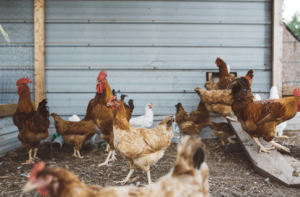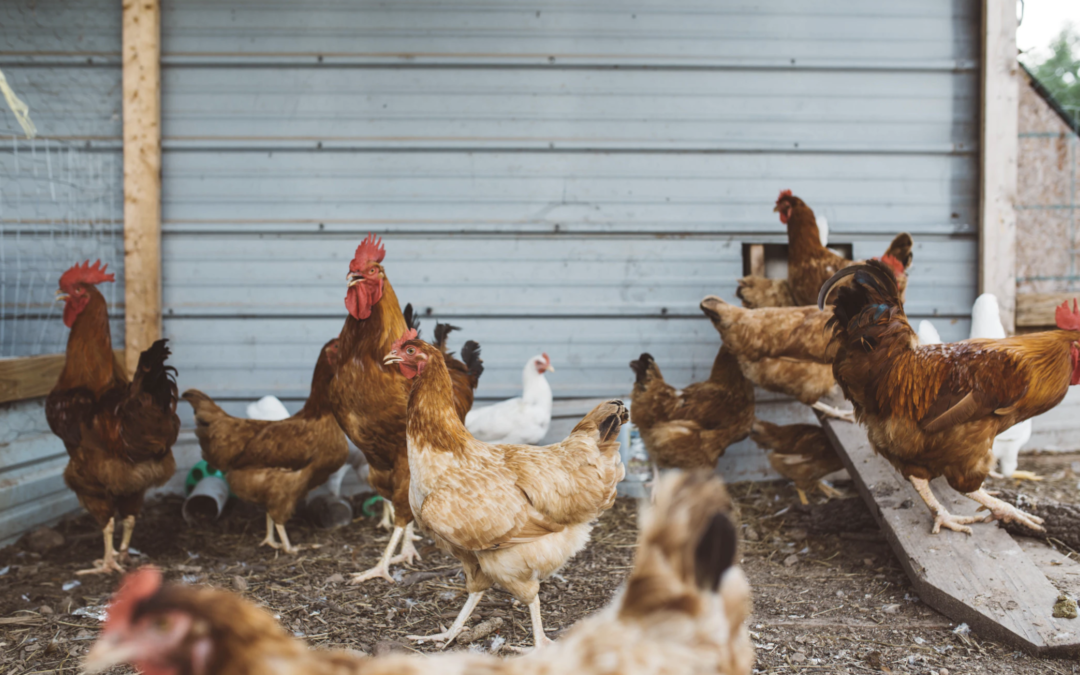Chances are pretty good your chickens have intestinal parasites, but it’s nothing to fret about — if you keep them in check.
Whether your chickens are confined or are free-range, they get parasites simply by doing what chickens do — pecking at the ground in search of bugs and earthworms and, in the process, pecking at chicken droppings which contain parasites.
Internal parasites that most affect poultry are:
Worms – Roundworms and tapeworms can cause heavy damage to the organs they infest. Most affect the digestive tract and can cause great damage to the intestines, according to poultry experts with the University of Minnesota extension service. Other types of roundworms can affect the animal’s windpipe or eyes.
Coccidia – These single-celled organisms live and reproduce in the digestive tract, causing tissue damage that reduces the absorption of nutrients and fluids. Coccidia, which can be deadly, is one of the most common and costly diseases in poultry, UM extension experts say, with signs of illness including bloody droppings, shivering, birds isolating themselves with eyes closed and feathers ruffled and decreased egg production. An ailing bird also may not eat or drink.
Low levels of infestation usually don’t cause problems and can be left untreated. High infestation, however, not only affects the animal’s health but can make a flock more susceptible to diseases.
Take precautions to control intestinal parasites in your flock:

- Upon acquiring chicks, start them off with high-quality feed. New Heritage animal feeds, for example, contain essential oils, which help to naturally boost your poultry’s immune system against parasites and disease.
- Keep your coops and roaming area clean and dry. Dampness is inviting to parasites.
- Replace bedding regularly so chickens don’t peck among their waste.
- Avoid over-crowding. Giving your chickens room to spread out can keep parasites down to a normal level.
To know the specific type of intestinal worm your chickens may be carrying, you’ll have to have a veterinarian examine droppings for signs of parasite eggs and, if necessary, perform an autopsy. But that is required only if you suspect an extreme parasite infestation.
Keep Your Poultry Healthy the Natural Way
Help your chickens’ immune systems stay healthy and strong with our New Heritage Feed Co. line of nutrient-dense, essential oil-infused feed. Essential oils can play a large role in keeping animals naturally healthy by boosting their immune system and warding off worms, coccidia, and other health problems the natural way – without antibiotics or chemicals.

Recent Comments